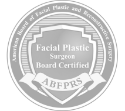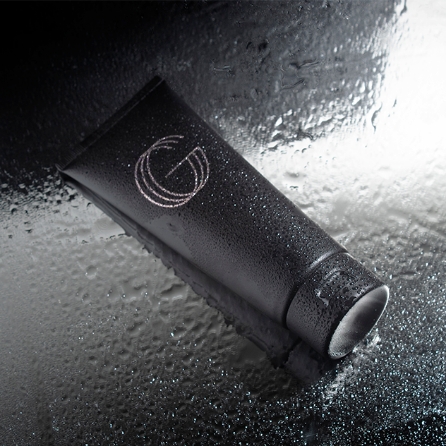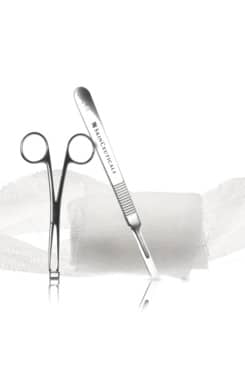NASHVILLE NONSURGICAL SKIN REJUVENATION
Have you ever wished you could just peel away all of your fine lines, age spots, and other imperfections? Well, now you can, thanks to an innovative nonsurgical procedure known as a chemical peel.
WHAT ARE CHEMICAL PEELS?
While modern chemical peels rely on more advanced formulas, this process has been used for millennia. This procedure was a favorite skin restoration method in ancient Egypt, Greece, and Rome, making it one of the oldest skin rejuvenation treatments in the world.
Chemical peels use skin resurfacing to correct superficial imperfections and initiate the production of collagen and elastin (two skin-firming compounds we tend to lose as we age). During a chemical peel, a safe and effective acidic solution made of hydroxy acids (AHA), trichloroacetic acid (TCA), or phenol is applied to the patient’s skin. This solution dissolves the uppermost layer of the dermis, removing dead skin skills, excess oil, and other built-up particles.
By stripping away skin cells, a chemical peel activates the body’s healing response—your body must produce collagen in order to regenerate the first layer of the dermis. This process is not unlike what happens when a sunburn “peels” and reveals a layer of incredibly smooth, soft new skin below. The only difference with a chemical peel is that there’s no harmful sun damage involved and the treatment penetrates more deeply. Chemical peels are safe for most individuals to use.
Corrects

- Texture
- Pigmentation
- Fine lines and wrinkles
Benefits

- Customizable solutions
- Boosted collagen production
- Brighter, more youthful look


ELEVATE YOUR CONFIDENCE
IN A LUXURY SURGICAL PRACTICE
Investing in your confidence is a big step, and your choice of facial plastic surgeon should reflect it. We offer a premier, luxury environment where you can focus on yourself.
With the help of our professional and knowledgeable team, you can begin your journey toward a more confident you. We’ll take every step to ensure you feel comfortable, pampered, and acknowledged. Begin your refined and cultivated experience here at Gilpin Facial Plastics & Aesthetics.
WHAT CAN CHEMICAL PEELS TREAT?
Chemical peels are used to treat fine lines, age spots and other signs of sun damage, acne scars, enlarged pores, blackheads, and uneven skin pigmentation. Chemical peels improve both the texture and the tone of skin in treated areas, resulting in skin that is softer and more supple.
CHEMICAL PEEL TREATMENTS: WHAT TO EXPECT
Chemical peels can be performed as an outpatient procedure and do not require any post-procedure downtime. However, after you have a chemical peel, you will likely experience mild redness, swelling, and peeling—this is normal and usually not very painful, but you may want to stay indoors for a few days until your skin has healed. Note that during this time, staying out of the sun will be absolutely essential; your skin will be very vulnerable to sun damage while it’s peeling. If you have to go outside, cover up and wear sunscreen.
How much peeling (and pain) you will experience will depend entirely on the strength of the peel you get. You can choose a gentler peel if you want to minimize redness, swelling, and irritation, but you should be aware that stronger peels are associated with more noticeable results. When you come in for a consultation, Dr. Gilpin and his clinical staff will assess the condition of your skin and recommend a treatment plan that is right for you.
Unlike microdermabrasion, chemical peels usually require just one appointment. As such, some patients see them as the most convenient nonsurgical skin rejuvenation option despite their potential healing time.
WHO MAKES A GOOD CHEMICAL PEEL CANDIDATE?
Chemical peels are suitable for most patients as they are very low-risk. However, they are not recommended for people with very sensitive skin, people with compromised immune systems or blood disorders, and women who are pregnant or breastfeeding. Those with severe acne and those taking Accutane also cannot have this procedure. Finally, people with very dark skin should be advised that skin lightening can sometimes occur with this procedure. (Note that if you are not a good candidate for chemical peeling, you may be able to safely use a chemical-free alternative like microdermabrasion. Talk to Dr. Gilpin about what options are available to you.)
While most people who are in good health can have a chemical peel, Nashville residents with deep wrinkles, severely pitted acne shares, or loose face and neck skin will need more aggressive therapies to address their aesthetic concerns. If you have any of the aforementioned issues, we advise combining a chemical peel with facelift surgery, Halo and laser resurfacing, and/or Botox and dermal fillers.
PATIENT REVIEWS
BOOK A CONSULTATION
Chemical peels work with the body’s natural healing processes to turn back the clock on aging, correct imperfections, and restore the vibrancy and volume of the skin. They’re highly affordable, convenient, and produce noticeable results—no wonder so many celebrities swear by them! If you would like to experience the difference a chemical peel can make in your appearance, simply contact our Nashville plastic surgery office today. We’ll be happy to arrange a chemical peel consultation for you.
HAVE A QUESTION?
Are you looking to enhance your appearance and boost your confidence? Complete this form to learn more or schedule a consultation with one of our experts at our Nashville, TN office. From facial plastic surgery to lasers & aesthetics, we offer a variety of services that help you put your best face forward.
Ask a Question














